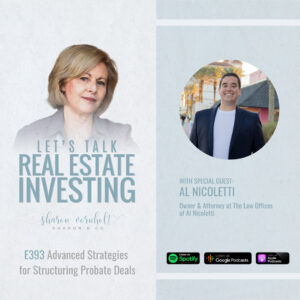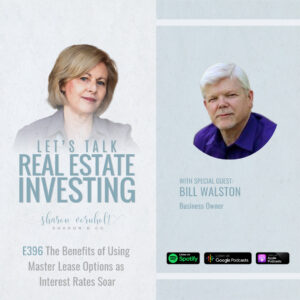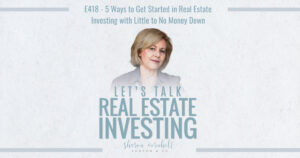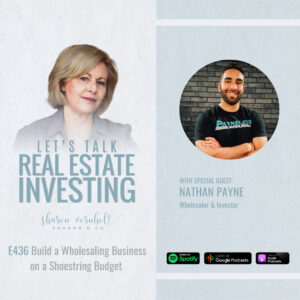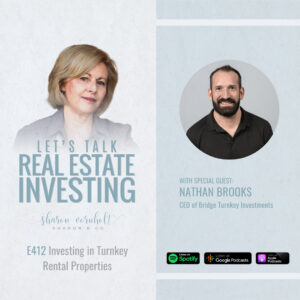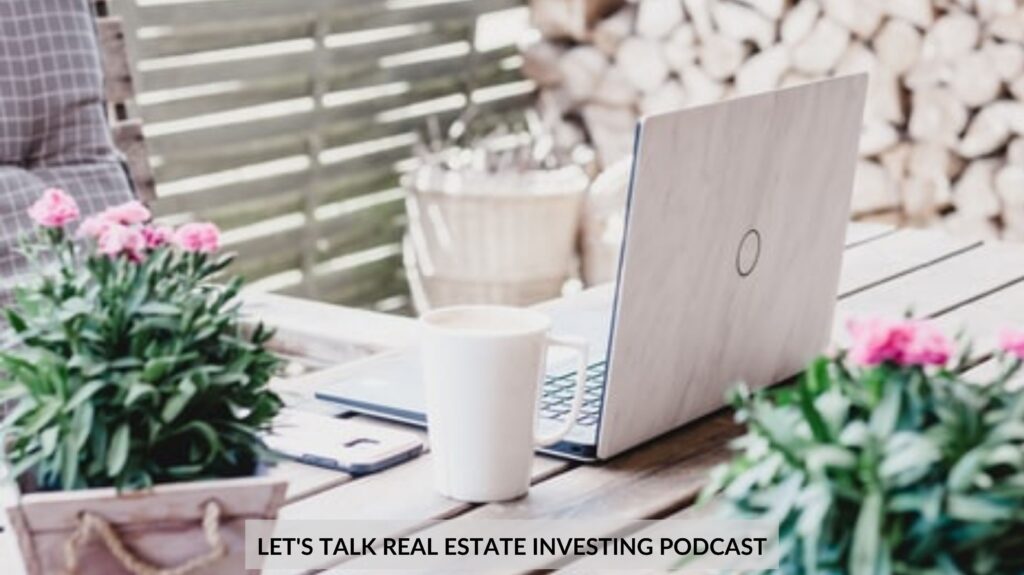
6 Strategies for Closing Off-Market Deals – Where Do You Get the Money?
Today we're going to talk about 6 strategies for closing off-market deals. So, where exactly do you get the money if you don't have cash in your bank account?
I’ve spent the last couple of weeks talking about off-market deals like probates, absentee owners, and other properties that aren’t listed on the MLS.
When a property is listed on the MLS, thousands of agents (and investors) have access to those properties. So, there’s a lot of competition for every property. That’s the reason I like off-market deals so much. There is so much less competition.
Why Would Sellers Choose Investors over Agents?
One thing that makes investors so attractive to these folks selling off-market deals is their ability to pay all cash and close quickly.
These sellers don’t have to wait for a retail buyer to get approved for conventional financing (which can take months). Then, they “hope” the buyers will be approved for a mortgage and make it to closing. They’re not looking for someone that “might” be able to close down the road. They are looking for certainty.
The Promise
When it comes to closing on these off-market deals, the same question always comes up with investors. That question is how to pay for those properties. Remember, the promise we make to sellers is, “I will pay all cash and close quickly”.
Let me be clear that a cash buyer is not necessarily one that can write a check for the property, but one that has quick access to cash. Understanding this is a game-changer.
Show Notes – Strategies for Closing Off-Market Deals
In today’s show, I have 6 strategies for closing off-market deals so that any investor can show up as a cash buyer.
1. Actual Cash Buyers
First of all, there are people out there that actually are cash buyers. I’ve sold houses to them. They would come to closing and simply write a check. But I have to tell you, that's not the average investor. Most people have a way to “become a cash buyer”.
2. HELOC's
The second way would be to use the equity in your home or in a rental property. You can leverage that equity and use it for investing in another property. The most common way to do that is through a HELOC or a home equity line of credit. In most cases you can only use 75-80% of your equity, so you won’t be able to take all of the equity out of a property. You can also use the equity in one property to secure a loan for another piece of property.
3. Self Directed Roth IRA's
The 3rd way that a lot of investors buy property is through a self-directed Roth IRA. With a typical IRA, you put your money in before taxes are withheld and you pay taxes when you take it out. Roth IRAs are funded with after-tax dollars. You’ve already paid the taxes on this money. With self-directed Roth IRAs, you can use the money to buy investment property. There are a whole lot of rules surrounding how all this has to happen, but you just need to know that it’s possible. You could be using funds in your own Roth IRA, or it might be someone loaning you money from their Roth IRA. The beauty of this is that any money you make off of the property is deposited back into the IRA tax-free. The money you took out might be for the entire purchase or to simply make a down payment on a property where you combine that with financing from an investor-friendly bank.
4. Investor-Friendly Banks
This brings me to #4 which is one that a lot of real estate investors use, and that is investor-friendly banks. When we talk about investor-friendly banks, you’re not looking for a big national mortgage company like Wells Fargo. You are looking for a small, local portfolio lender. So, what’s a portfolio lender? A portfolio lender will generally be a small local bank or credit union that holds a least some of its loans in-house. Most loans like FHA loans are backed by the government, and these loans are not actually held in-house by the bank or mortgage company you borrowed the money from. When you are looking for investor-friendly banks, start your search with local banks.
5, Hard Money Loans
#5 is hard money loans. A lot of investors use hard money because your credit rarely comes into play with this type of loan. It’s the property itself that the hard money lender looks at. The loan will be secured by the property. What are the pros and cons of using hard money? One of the cons of using hard money loans is that it’s expensive. Interest rates and up-front fees are costly.
The good thing about hard money is that it's easy to get funding for your deals. If you have a great deal, you will always be able to get that deal funded. If using hard money means you can close on a killer deal, my advice is to use it and don’t worry about the cost. A lot of investors use hard money. Just factor the costs into the equation when you buy the property. The cost of the money is one of the costs of doing business.
6. Private Money Partners
The 6th way you can fund your deal is with private money partners. You should make it a priority to line up sources of private money for your business. There will come a day, when you will need this; when your other sources just won't work for you. Trust me on this one. Private money is different from hard money.
Private money lenders are folks that you might know, or they might be referred to you by people you know. Generally speaking, their rates are more favorable than hard money lenders, but their rates are more than investor-friendly banks. Their rates sit in the middle between these two. Look at these are folks as private money partners. They have some money that’s in the bank earning next to nothing, or possibly they’re looking for something more stable than the stock market. Whatever their particular situation is, they are looking to get a bigger return on their money than they are currently getting. Since the money they are loaning you is always secured by the property, it’s a pretty safe investment.
As an investor, buying houses in decent nice is very important here. Private money partners want to loan money on property in nice appreciating areas where they feel like their investment will be safe. One important thing to point out is that in most cases, they’re not going to want to tie their money up for long periods of time. They won’t be interested in providing long-term financing. Think of these folks as sources of cash for down payments, short-term financing for wholesale deals, or construction loans.
Final Thoughts
Using OPM or “other people's money” has been the way investors have purchased property for decades. Using OPM gives everyone an equal chance to invest in real estate and build wealth over time. I hope this helps you get a clearer picture of where you can find cash for your deals so that you can confidently put yourself out there as a cash buyer.
Knowledge is power! And, having access to other people's money is a real game-changer. I hope these 6 strategies for closing off-market deals will help you close more deals!
Thanks for Listening to the Show!
I would really love to hear from you. Please leave a note in the comments section below. And, if you enjoyed this episode, please share it on social media using the social share buttons below.
Please Subscribe and Review in iTunes
Are you subscribed to my podcast? If you’re not, I want to encourage you to do that today so you don’t miss a single episode. I’m doing some special bonus episodes and if you’re not subscribed there’s a good chance you’ll miss out on those. Click here to subscribe to iTunes!
I would be really grateful if you left me a rating and review over on iTunes too. I love reading those reviews, and they help other people find my podcast. Here's how you do that: Just click here to leave a review. Once you're on Apple podcasts, click “listen in iTunes.” Then select “Ratings and Reviews” and “Write a Review”. Let me know what your favorite part of the podcast is. Thank you!
You can listen and subscribe on Stitcher by clicking this link: Subscribe on Stitcher, You can also listen on your favorite podcast player.
If you want to find out how you can work with me, you can do that by clicking here. Learn specific strategies for building your brand and creating more effective marketing for your business.
To learn how to to become the go-to probate expert in your area Just click his link.
Have you gotten your freebies and subscribed to the blog? If not be sure to do that today so you don’t miss any of the business-building tips I have coming your way. I want this year to be your best year ever!
This previously published post has been updated.
.

